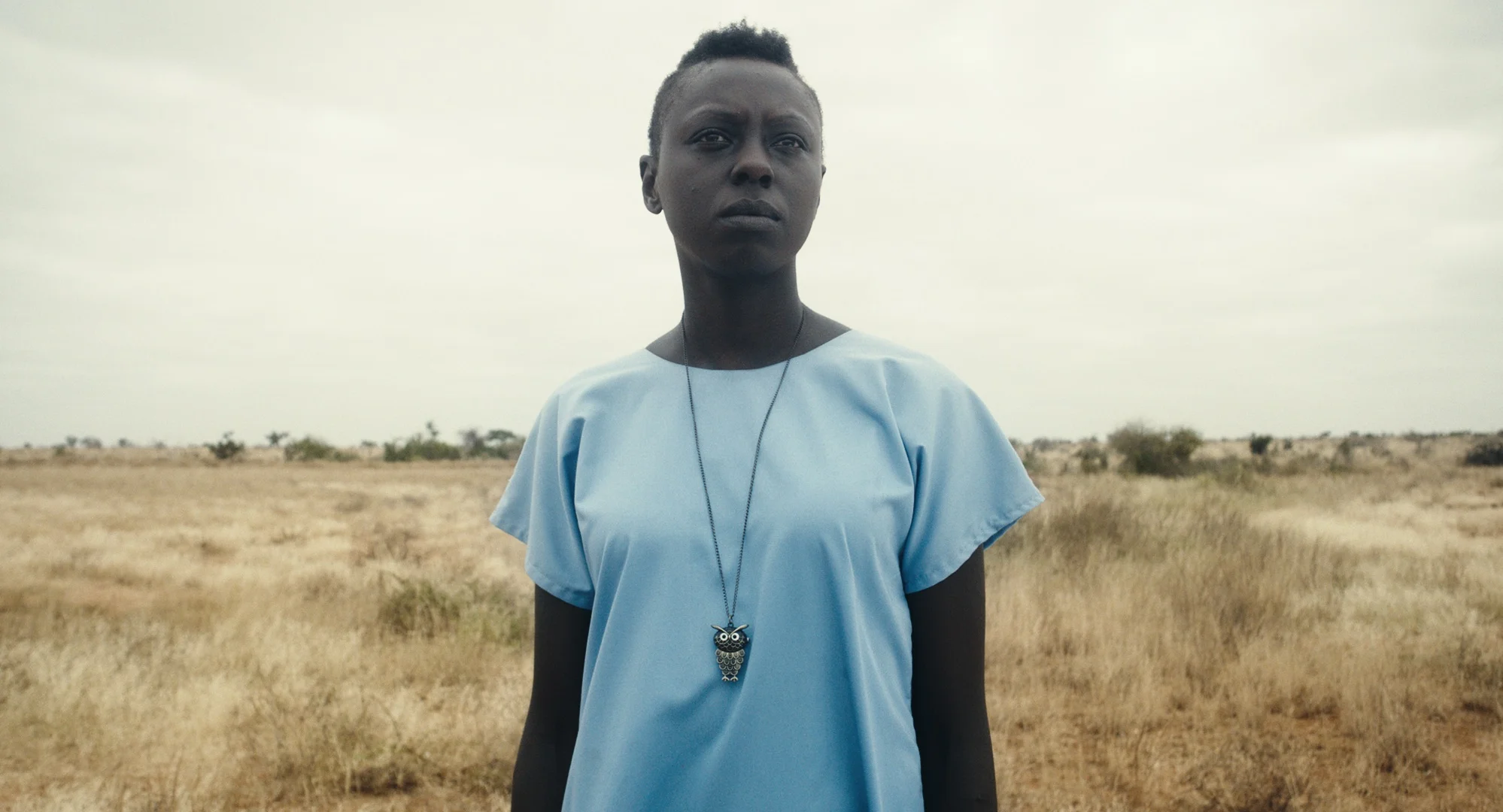Review: Kati Kati (2016)
Mbithi Masya’s Kati Kati has a touch of Lost, a touch of Jean-Paul Sartre, and even a little of The Prisoner about its story of a woman trapped in limbo; but its specific blend of supernatural elements, ruminations on faith, and allusions to sociopolitical events in Kenya make it as unique a film as you’re likely to watch in contemporary international cinema.
It’s fabulously-shot and has an eerie atmosphere that pervades its entire 75-minute runtime, but it’s not mimicking any one popular independent style; it uses a lot of narrow-focus close-ups, but Masya frequently contrasts those personal close-ups with handheld wide shots capturing the emptiness of the landscape and the lodge setting. It’s distinctly Kenyan, but it’s not interested in telling a tale of poverty or colonialism or of a nation and its people trying to form a clear sense of self; it may comment on society, but it’s not grandstanding and everything is grounded in character.
The film begins with Kaleche, played with wonderful curiosity by Nyokabi Gethaiga, standing in a hospital gown in an empty stretch of bush. She’s confused and evidently doesn’t know why she’s there. She stumbles upon a nearby safari lodge where a group of people led by the charismatic Thoma (Elsaphan Njora) inform her she’s dead and trapped in this limbo state along with them.
One of the ways that Kati Kati side-steps some of the tedious formula of afterlife narratives is by clarifying the situation up front. The characters may not know exactly why they’re there, but they know they’re dead and they know there are rules to the lodge, even if those rules seem arbitrary. For instance, people who died in the 1990s find themselves arriving at the lodge after people who died in 2016. Linear time seems to have no effect on when you show up, and there’s no clear explanation for how you leave, aside from having something to do with clearing up business left unfinished in life.
This approach is familiar to most afterlife narratives, as why keep people around in a form similar to life if they don’t have something they need to do? But the film’s approach doesn’t simply go through the motions of having Kaleche tidily solve the outstanding issues of her existence. Instead, it zeroes in on these people who seem to have all the time in the world to pursue their interests—characters need only write material requests on a notepad outside their room to have that request fulfilled each morning—and ruminate on mistakes they made in life. Masya pays most attention to Kaleche and Thoma, who seem intrinsically linked, but also gives enough time to satisfying subplots about other characters such as the basketball-obsessed young man, Mikey (Paul Ogola), and the stoic minister, King (Peter King Mwania).
There are narrative twists and turns here, but they’re handled remarkably well. They’re not exactly obvious, but Masya telegraphs enough of them early in the narrative for them to come more as payoff than clever subversion or surprise; they clarify the characters’ emotional development to that point, instead of negating it or turning the film in a whole new direction. Furthermore, despite being a film about a sort of afterlife, Kati Kati has surprisingly tactile pleasures. Some parts are downright sexy, from a friendly game of one-on-one basketball between Kaleche and Mikey turning into a sort of courtship dance to Thoma and Kaleche sharing a moment on a piano. Other sequences veer into almost Lynchian pervisity in their manifestations of the character’s haunted past, especially a zombified doppelganger of Thoma that stalks his imagination and taunts his every action.
Kati Kati might not use the afterlife in a way as cinematically fascinating as Hirozaku Kore-eda’s After Life, but like that film, it does conjure a vision of the beyond that seems genuinely new. This is entertainment that is dramatically engaging, culturally-specific, and aesthetically bold. Most feature debuts can’t hold a candle to it, no matter their origin.
8 out of 10
Kati Kati (2016, Kenya/Germany)
Directed by Mbithi Masya; written by Mbithi Masya and Mugambi Nthiga; starring Nyokabi Gethaiga, Elsaphan Njora, Paul Ogola, Peter King Mwania.
